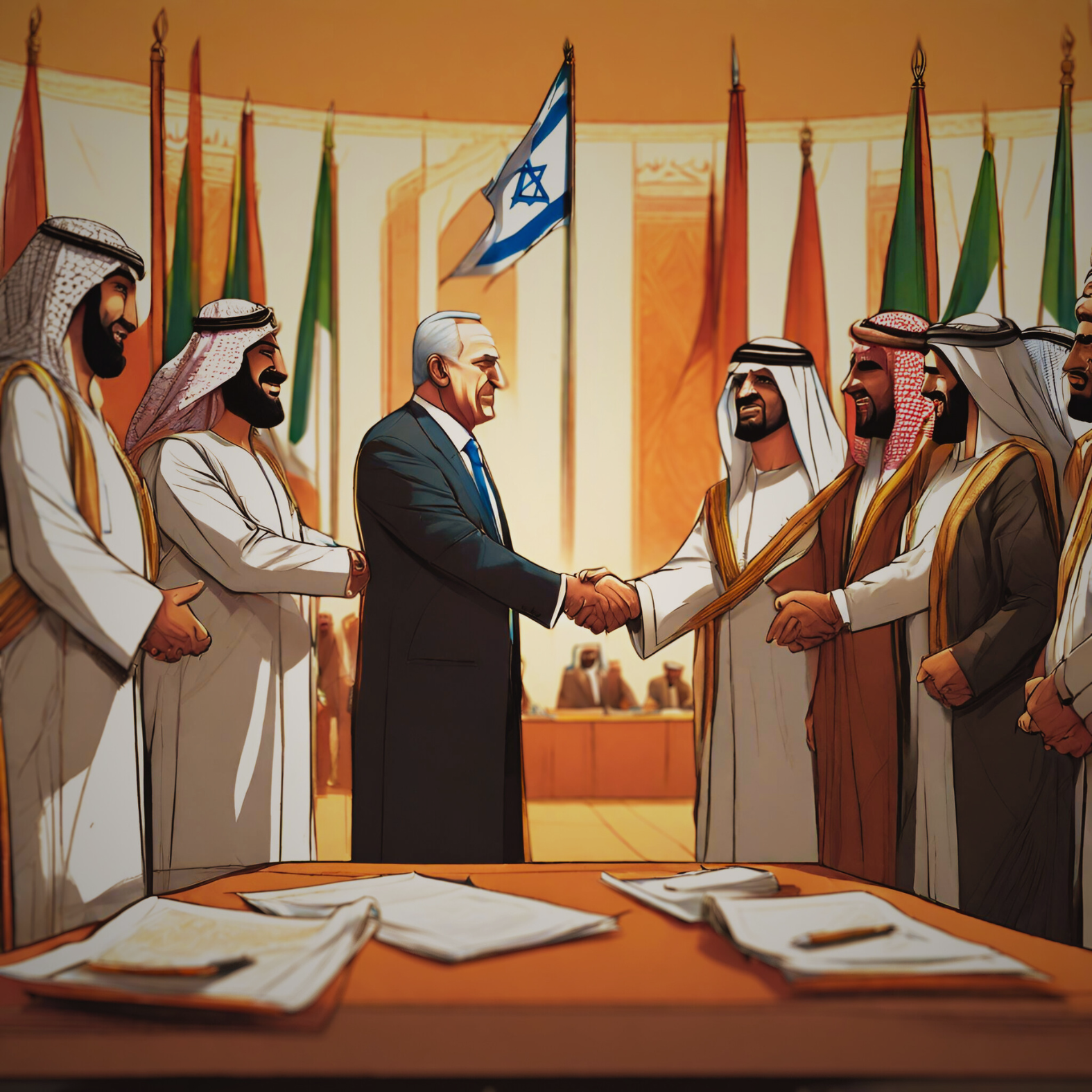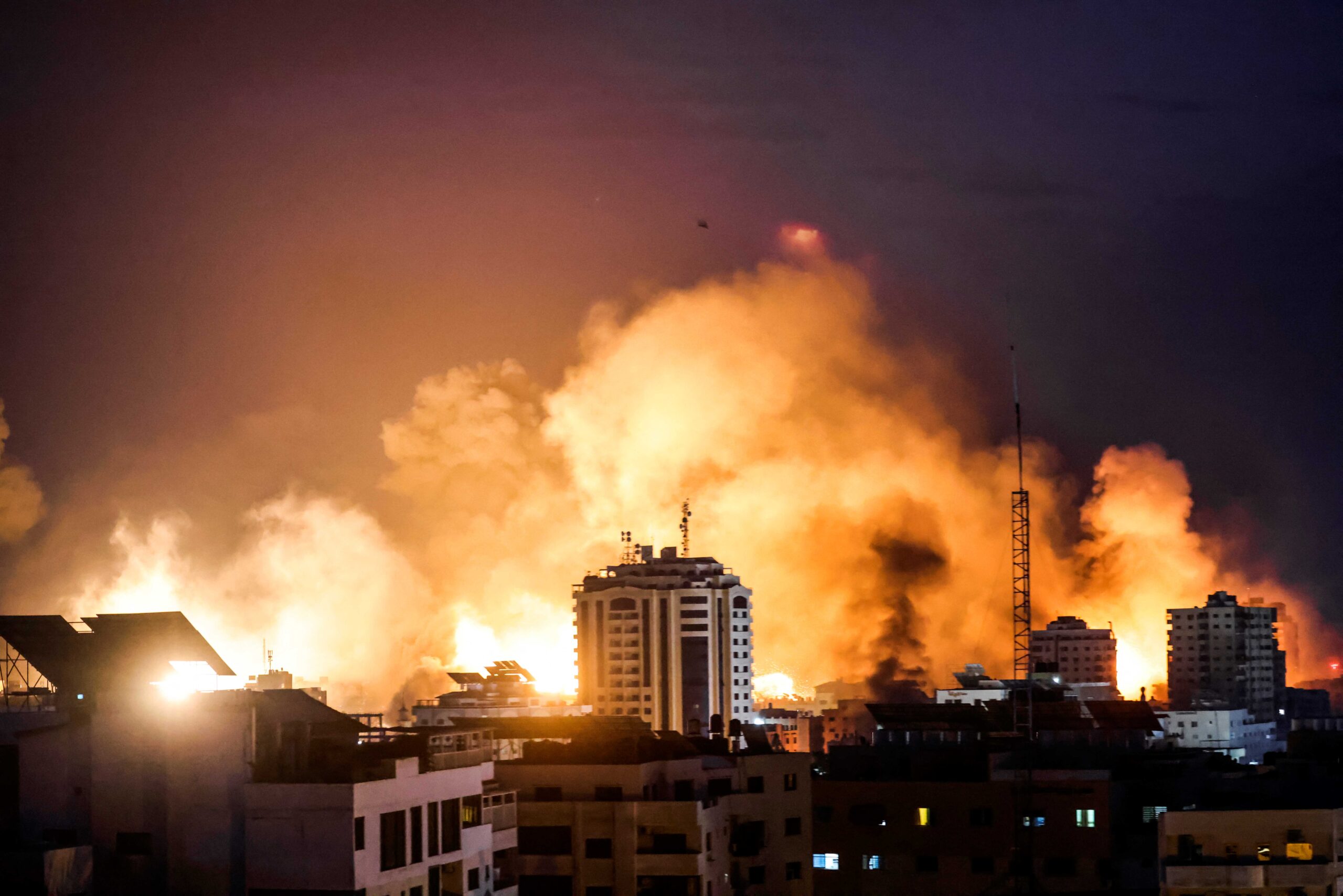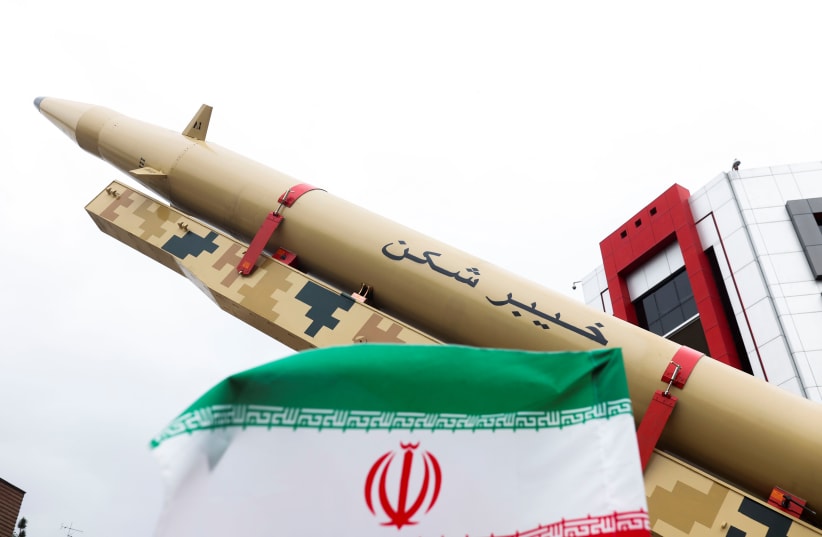By Osman Softić || 8 November 2024
 One of the most seasoned American experts on the Middle East, retired US ambassador Ryan Crocker, named by former US President George W. Bush as “American Lawrence of Arabia” was completely honest when he said that “despite public support for Palestinian rights almost all Arab states have long viewed the Palestinians with discomfort and suspicion”. Crocker served for several decades in the Arab world as ambassador to Lebanon, Syria, Iraq, Kuwait, Afghanistan and Pakistan. He followed the Palestinian struggle from the guerrilla movement of the PLO to the failed diplomatic struggle during the Oslo process in 1993.
One of the most seasoned American experts on the Middle East, retired US ambassador Ryan Crocker, named by former US President George W. Bush as “American Lawrence of Arabia” was completely honest when he said that “despite public support for Palestinian rights almost all Arab states have long viewed the Palestinians with discomfort and suspicion”. Crocker served for several decades in the Arab world as ambassador to Lebanon, Syria, Iraq, Kuwait, Afghanistan and Pakistan. He followed the Palestinian struggle from the guerrilla movement of the PLO to the failed diplomatic struggle during the Oslo process in 1993.
In his book The Brokers of Deceit, Rashid Khalidi labeled the Oslo process as a deception of the Palestinians by Israel and the USA, claiming that Israel had never intended to fulfill its obligations. Even the assassinated Prime Minister of Israel Yitzak Rabin had stated that the Palestinians could only get a kind of autonomy (but less than a state), for Israel must have sovereignty over the entire area of historical Palestine. Followers of an extremist ideology of the ultra-orthodox Jewish rabbi Meir Kahane (Kahanism), whose extremist admirers killed their own prime minister Rabin, have now become part of the Israeli cabinet, and one of them, Itamar Ben-Gvir, is the minister of security. Therefore, professor Khalidi, who advised the Palestinian negotiators during the conference in Madrid in 1991., as part of the Oslo process, rightly called it a fraud and not a real peace process.
Palestinian imbroglio
The situation is not any better today when Washington’s interests in the Middle East are represented by the pro-Israel neoconservative envoys Amos Hochstein and Brett McGurk, American officials who work on behalf of the US government but in the interest of Israel. Hochstein, an Israeli citizen who served in the Israeli army (IDF), is now trying to legitimize Israel’s invasion of Lebanon and to install a new regime in Beirut that is antagonistic towards Lebanese people’s interests but to serve the Israeli agenda. This choice of diplomats by American administration cannot be sold to the world as unbiased and will never lead to peace because it serves the Israeli expansionist policy goals and supports the genocide project in Palestine and Lebanon.
To make the paradox even greater, the Palestinians and the Lebanese are being blamed for choosing Iran, Syria and Iraq as their allies, that is, the forces of the axis of resistance against Israel that Iran supports. The best answer to this hypocritical paradox of American and Western politics was given by the Indian Catholic progressive writer Arundhati Roy, when she recently said in her speech at the award ceremony for literature in London:
“I refuse to play the game of condemning (Hamas emphasis added). Allow me to be clear, I have no right to preach to the oppressed people how and in what way they should resist their oppressor, let alone suggest to them who to choose as an ally”.
The desperate struggle of the Palestinians for survival has always been accompanied by the muffled silence and passivity of the Arab regimes who, although they could, did not find a way to exert diplomatic and economic pressure on Israel for the concessions they gave to Israel in the process of normalizing relations, in order to help bring the Israeli occupation to an end and that the Palestinians get their state, to which they are entitled. The lack of reaction or any united response by Arab states to Israel’s genocide in Gaza and attempted occupation of southern Lebanon is astonishing.
Normalization with Israel
 Saudi Arabia still keeps open the possibility of normalizing relations with Israel. The UAE, Morocco and Bahrain did not withdraw their ambassadors from Israel either. Jordan has done this, but since half of Jordan’s population is of Palestinian descent, Jordan could easily become engulfed in turmoil if the genocide in Gaza continues. Netanyahu rejects any possibility of a Palestinian state, and continues the aggression of Lebanon and uses the opportunity to drag the US into open war with Iran, which has twice launched ballistic attacks on Israel using the international right of self-defense.
Saudi Arabia still keeps open the possibility of normalizing relations with Israel. The UAE, Morocco and Bahrain did not withdraw their ambassadors from Israel either. Jordan has done this, but since half of Jordan’s population is of Palestinian descent, Jordan could easily become engulfed in turmoil if the genocide in Gaza continues. Netanyahu rejects any possibility of a Palestinian state, and continues the aggression of Lebanon and uses the opportunity to drag the US into open war with Iran, which has twice launched ballistic attacks on Israel using the international right of self-defense.
Unlike Egypt and several Arab monarchies that have normalized relations with Israel, Iran is the only Muslim power that publicly supports the Palestinian people’s struggle for freedom, and for this purpose supports armed resistance and coordinates the axis of resistance of non-state actors that resist Israeli expansionist campaigns with asymmetrical resistance in Gaza, as well as the neighboring Arab countries. The Islamic Republic of Iran has directly launched ballistic missile attacks on Israel twice in the past months. Arab monarchical regimes are not only militarily incompetent, but are also blackmailed vassals and clients of US and Western policies and have no capacity to stand up to Israel.
Egypt and Jordan’s hands are tied by peace agreements and dependence on billions of dollars in US aid. In addition, the traditional Arab regimes, especially Syria as was Iraq in the past never recovered from the frequent humiliations and defeats, they experienced at the hands of Israel.
After the regular armies of the Arab countries repeatedly suffered defeat from Israel, losing every war and territory (1948, 1956, 1967, 1973), the Arab countries lost their appetite for military confrontation with Israel, realizing that they could not deal with the power backed by the USA and European allies. As a result of America’s shuttle diplomacy in the Middle East, led in a critical period by Henry Kissinger, whose primary task was to ensure not only security but also Israel’s primacy in the region, two of Israel’s neighbors signed peace treaties with Israel, first Egypt in 1979, and later Jordan in 1994.
In the meantime, the Palestinian national movement led by the PLO’s Yasser Arafat independently continued to wage a guerrilla struggle for the liberation of Palestine from neighboring countries. In that struggle, the Palestinians came into conflict with several Arab states in which they resided. In Jordan in 1970, there was a major armed conflict between the left-leaning radical factions of the PLO and the Jordanian army. The Palestinian rebellion was suppressed and three thousand Palestinian fighters (fedayeen) were killed. The Jordanian forces were commanded by the Pakistani Brigadier Ziaul-Haqq, who would later become the chief of the Pakistani army and then the president of Pakistan (probably rewarded by the Western powers for suppressing the Palestinian rebellion in Jordan which ensured the continuation of the rule of the Hashemite monarchy).
This tragic event, known as Black September, is a testament to the Arab monarchy’s anxiety and fear of the Palestinian resistance movement, both its leftist factions and Islamist conservative options. Jordan’s permission to Israel (the only Arab country to do so) to use its airspace for the first major direct air attack on Iran on October 26, 2024, confirms the continuity of this monarchy in its servility towards Israel. Jordan has thereby confirmed that it has no real sovereignty let alone concern for the wellbeing of Palestine, as is a client state and vassal of Israel, which, to make the paradox even greater, has the authority to administer Islamic religious sites and pilgrimage in Jerusalem.
After the expulsion of the PLO from Jordan, the Palestinians also faced the animosity of some local forces in Lebanon, who saw them as a “disruptive factor and as provocateurs” that provoked Israel’s anger and retaliation. During the civil war in Lebanon (1975-1990), in addition to numerous internal confrontations and external interference, the phenomenon known as the war of refugee camps reflects another Arab antagonistic attitude towards the PLO and the Palestinian refugee community in that country, which the Lebanese state could not control.
PLO was particularly autonomous in the south of Lebanon. Israel used it as a pretext for the invasion of Lebanon in 1982. The Arab countries, before the establishment of the autonomous Palestinian representative body, the PLO, managed the politics of resistance on behalf of the Palestinians and sought to control the narrative and politics of the Palestinian question. Even today, some Arab countries have not given up their assumed right to dictate to the Palestinians how and in what way they will treat the occupation and which political option will represent them.
The betrayal of the Palestinian cause
 Most Arab countries (Qatar is an exception) have a particular animosity towards Hamas as an Islamic resistance movement for ideological reasons. Some powerful and influential Arab states that Muslims around the world naively expect to help the Palestinians and the people of Lebanon actually have a common interest with the Israeli regime in weakening and destroying Hamas, the main protagonist of resistance in Palestine just as Hezbollah is in Lebanon, considering them Iranian proxies by means of which Iran maintains its strategic depth and the first line of defense (forward defense) against the Israeli threat, which Israel considers a “ring of fire” that it wants to break.
Most Arab countries (Qatar is an exception) have a particular animosity towards Hamas as an Islamic resistance movement for ideological reasons. Some powerful and influential Arab states that Muslims around the world naively expect to help the Palestinians and the people of Lebanon actually have a common interest with the Israeli regime in weakening and destroying Hamas, the main protagonist of resistance in Palestine just as Hezbollah is in Lebanon, considering them Iranian proxies by means of which Iran maintains its strategic depth and the first line of defense (forward defense) against the Israeli threat, which Israel considers a “ring of fire” that it wants to break.
As justification, they refer to the Arab Peace Initiative (API) for Palestine also known as “the Saudi Initiative” proposed in 2002 (under the crown prince Abdullah) and the 1989 “Taif Peace Accords” that ended the civil war in Lebanon. Due to Israeli arrogance, expansionism and aggression, the API, which was opposed by Lebanon and Syria at the Beirut summit in 2002 due to some disagreement over the details, has remained a dead letter for more than two decades. Saudi Arabia, on the other hand, insists on its implementation as a condition for the normalization of relations with Israel, while other Arab monarchies succumbed to Israel’s dictates, naively believing that it may protect their narrow national interests (the survival of the regime and the chance to modernize society and the economy with the help of Israel as an intermediary in securing the favor of Washington, on which Israel has an enormous influence).
While Israel wants to get out of isolation, it wants to secure not only financial benefits but also a strategic advantage, by approaching Iran in order to surround it (containment), as Israel considers Iran its biggest obstacle preventing it to attain complete regional domination, thus enabling it to control the water and energy resources of the Arab and other Muslim countries in the region. Therefore, relations of Israel with the UAE and Azerbaijan, as well as Bahrain are particularly valuable for Israel and close ties with Morocco would ensure Israel’s control of the critical global phosphate resources in the rocky deserts of restive province of Western Sahara which has for decades been struggling for independence but is occupied by Morocco. Israel would also want to have leverage over Algeria, one of the few sovereign revolutionary Arab states with a tremendous record of resistance to foreign colonial occupation. Algeria supports the Palestinian struggle for freedom and is one of the few Arab countries which the Western powers failed to subjugate in recent times.
The Israeli regime and its protectors in the West, above all the USA, do not want to accept the fact that the primary cause of conflict and instability in the Middle East during the past seven decades is Israel’s colonial occupation and policy of expansionism. The reason for this is clear, it suits the Western powers perfectly in order to justify their military presence in the region. Hence the American arming of Israel in order to control the Arab energy resources and to implement the policy of Iran’s containment. Washington and its western allies view Iran as the only serious obstacle to American-led western and Israeli hegemony in West Asia.
That is why American policy has tried for decades to destabilize this region by producing regional wars and fomenting inter-Muslim sectarian conflicts, for the sake of arms sales, exploitation and control of cheap energy sources, fighting against any ideology and anti-Western movement it deemed threatening to its widely defined interests (be it communism, Arab nationalism, socialism or Islamism – political Islam) which resisted American hegemony and Israeli occupation and expansionism. The Palestinian question remains the central moral, political, humanitarian and philosophical question of humanity. Its resolution will also determine the fate of West Asia. Everything else is just the theatrical American micro militarism, as the French Jewish demographer and academic Emanuel Todd called America’s wars in the Islamic world in his study titled “After the Empire”.
The Nuclear Iran
Since the West and Israel only know and value brute force, the idea of a nuclear-armed Iran may be the best way to establish a balance of power that will lead to a wider equilibrium and peace in the Middle East. This idea was suggested in 2012 by Kenneth Waltz, one of the most famous American theorists of realism in international relations, in his essay titled “Why Iran Should Get the Bomb”, published in the renowned international relations journal Foreign Affairs. Since Israel does not respect international law nor does it behave according to the rules that apply to other UN member states, it can be labeled as a “pariah or rogue state”.
However, since the US provides unconditional support to Israel, the regime in Tel Aviv is shielded from the consequences of international sanctions. Given these circumstances, and coupled with Israeli threat to destroy (instigate regime change by force) the revolutionary order in Iran, conditions have almost been created in which professor Waltz’s idea could become a new reality in the Middle East, regardless of the Fatwa of Iran’s Supreme Leader Ayatollah Ali Khamenei declaring the ban on weapons of mass destruction in Islam, Iran quite rightly insists on.
 After all, nuclear weapons only become deadly if they are used. On the other hand, nuclear weapons in the possession of two antagonistic states guarantee mutually assured destruction (MAD), which leads to restoration of the balance of power and produces a more stable political order. During the cold war between the two world blocs (Washington’s and Moscow’s camps), nuclear parity and belief in the MAD doctrine helped to prevent a direct kinetic confrontation between the two superpowers and a nuclear conflict was thus avoided for many decades. Of course, numerous proxy wars were fought in parts of Africa, Asia and South America, where the interests of the great powers collided the most.
After all, nuclear weapons only become deadly if they are used. On the other hand, nuclear weapons in the possession of two antagonistic states guarantee mutually assured destruction (MAD), which leads to restoration of the balance of power and produces a more stable political order. During the cold war between the two world blocs (Washington’s and Moscow’s camps), nuclear parity and belief in the MAD doctrine helped to prevent a direct kinetic confrontation between the two superpowers and a nuclear conflict was thus avoided for many decades. Of course, numerous proxy wars were fought in parts of Africa, Asia and South America, where the interests of the great powers collided the most.
One of the great experts on strategy, global security and nuclear confrontation and planning, Desmond John Ball, an academic who worked for decades at the Australian National University in Canberra (ANU), made an invaluable contribution to the understanding of nuclear doctrine, proving in his research that during the cold war Moscow possessed a serious capacity of the so-called second-strike capability. Studying the American-Australian intelligence signal center known as The Pine Gap in central Australia, which still serves today as an early warning center, and which was used for tracking the Soviet nuclear weapons, professor Des Ball managed to convince the American administration not to be carried away by the idea that it can neutralize the Soviets’ 2nd strike capability in case the US decided to carry out the first strike against the Soviet Union, which was seriously discussed in American strategic planning centers in the seventies.
In this way, professor Des Ball shook the confidence of the American strategic community in the nuclear superiority and supremacy of the USA. For his contribution to peacekeeping, Professor Ball later received a prestigious award from US President Jimmy Carter, and the media characterized him as a “bearded and barefoot academic” who saved the world from nuclear catastrophe, although his work in Australia was initially considered suspect by the intelligence community given his earlier student left-wing political activism (especially his opposition to the war in Vietnam).
Since the most recent direct confrontation between Israel and Iran is motivated by both countries’ efforts to establish an effective deterrence posture, professor Ball’s scholarly research could serve as a useful reference point, especially for extremists in the Netanyahu’s government, lest they decide to go too far in their overconfidence and arrogance blinded by hostility towards Iran while being emboldened by the assumption that Israel possesses a large number of undeclared nuclear warheads. Ultimately, nuclear weapons are the most effective deterrence system against aggression when all conventional instruments prove insufficiently effective. This is especially true in the case of a serious threat to the survival of a state.
That is why political and strategic circles in Iran have recently been seriously considering a change in defense doctrine, including a review of the current policy regarding the nuclear program. Iran’s support for Palestine and the axis of resistance, Israel’s aggressive determination to wage war on seven fronts simultaneously, and the fact that Iran has already become a threshold nuclear power, is a serious obstacle to Israel’s ambitions to establish hegemony in the center of the Arab-Islamic world and this is why western world fears the impending shift in the balance of power in the critical region of West Asia which the US needs to reduce its presence in if it is serious about confronting already risen China, its real peer competitor in East Asia.
 Osman Softić is a Research Fellow at the Islamic Renaissance Front. He holds a BA degree in Islamic Studies from the Faculty of Islamic Studies of the University of Sarajevo and has a Master degree in International Relations from the University of New South Wales (UNSW). He contributed commentaries on Middle Eastern and Islamic Affairs for the web portal Al Jazeera Balkans, Online Opinion, Engage and Open Democracy. Osman holds dual Bosnian and Australian citizenship.
Osman Softić is a Research Fellow at the Islamic Renaissance Front. He holds a BA degree in Islamic Studies from the Faculty of Islamic Studies of the University of Sarajevo and has a Master degree in International Relations from the University of New South Wales (UNSW). He contributed commentaries on Middle Eastern and Islamic Affairs for the web portal Al Jazeera Balkans, Online Opinion, Engage and Open Democracy. Osman holds dual Bosnian and Australian citizenship.

